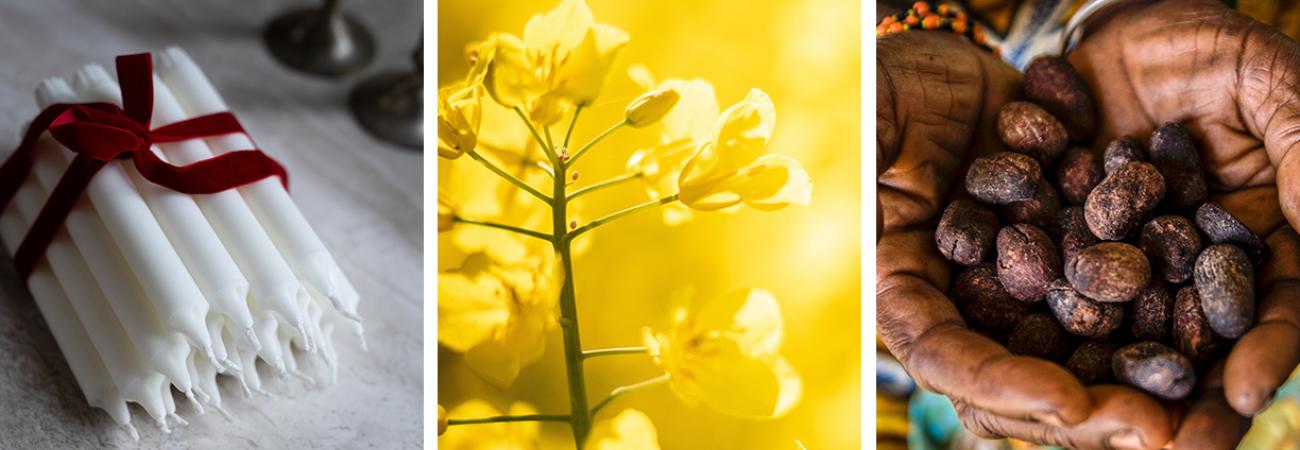
Materials
We firmly believe that renewable materials surpass fossil-based raw materials in their benefits. They not only enable us to create products that meet high-quality standards but also offer a superior environmental advantage. Here are our preferred materials.
Stearin
Stearin is a locally sourced renewable material, derived from natural resources that can be replenished generation after generation. As a by-product, it is inherently resource-efficient and boasts a low climate impact, unlike paraffin, which is made from fossil fuels and has a higher CO2 footprint. Certified by the Swan label, stearin ensures environmental responsibility and adheres to stringent health, quality, and safety standards. Its unique properties make it an ideal choice for pillar and taper candles: it boasts a beautiful, chalk-white appearance and maintains its shape even when exposed to high temperatures from sunlight or radiators.
Rapeseed
Rapeseed wax, sourced from the fields of yellow rapeseed flowers across Europe, is a renewable and biodegradable raw material. Its significant advantage over paraffin and soy wax lies in its low climate impact. As rapeseed candles illuminate, they offer an eco-friendly alternative with low carbon emissions, thereby contributing to a cleaner atmosphere. Moreover, being both vegan-friendly and scentless, rapeseed wax is an ideal choice for scented candles. Certified by the Swan label, rapeseed wax adheres to stringent environmental, health, quality, and safety standards. However, scented candles made of rapeseed cannot bear the Nordic Swan eco-label due to the inclusion of fragrances.
Shea
Shea stearin, derived from wild shea trees in Africa, offers a sustainable, plant-based choice for candle making. As a renewable and biodegradable material, it stands out as an eco-conscious option. Cultivated without the use of fertilizers, shea promotes natural growth and minimizes ecological impact, contributing to environmental sustainability. Additionally, the manual collection of shea fruit by women in Africa not only supports local economies but also serves as a vital source of economic empowerment for women.